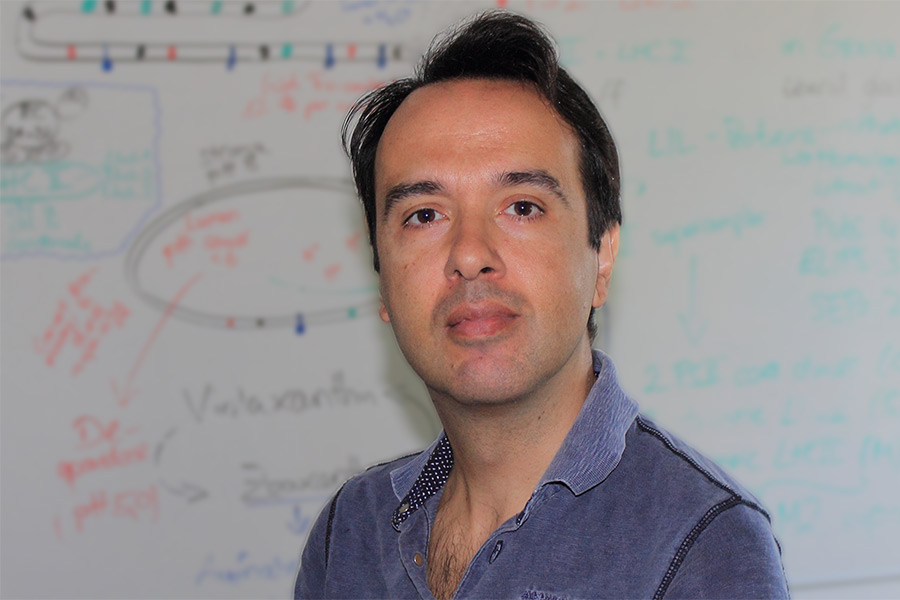Dr. Paulo Cabrita started working at the IAPN on the 1st of August 2018 on the project “The application of digital and sensing methods in plant nutrition” as well as other projects focused on the water-use efficiency of crop plants.
When plants display visible symptoms of stress, they can already be seriously and in some cases irreversibly affected. Knowledge and understanding of leaf optical properties allows for non-destructive presymptomatic monitoring of plant physiological changes by using current imaging techniques. In this respect, thermal, reflectance and fluorescence imaging have proved their potential by detecting stress-related changes in leaf optical properties. These imaging techniques can be applied from microscopic to airborne or satellite remote sensing observations. The development of these methods is thus crucial for crop monitoring, allowing us to alleviate stress at early stages of plant growth and avoiding irreversible damage and thus mitigate yield losses substantially. Several imaging techniques have been used to detect early signs of stress by monitoring changes in water status, photosynthetic pigment concentration and efficiency, accumulation of secondary metabolites, nutrient status, or structural modifications. Complemented with statistical tools and phenology, soil, and weather data, these methods are used to evaluate the effect of fertilization on productivity and to determine critical nutrient ranges for maintaining physiologically important processes.
Previously and using his expertise and interdisciplinary experience in plant physiology, Dr. Paulo Cabrita worked in Darmstadt on the application and development of remote sensing methods to monitor and determine morphological and physiological parameters both on test trials as well as on field level in forests and crops. These methods involved evaluations of plant development and plant health by assessing yield, nutrient status and drought stress as well as the occurrence of diseases and the effects of treatments (e.g. fertilization, fungicides). Dr. Paulo Cabrita obtained his Ph.D. in 2011 with the thesis “Experimental and theoretical studies of phloem transport with the inclusion of lateral solute exchanges and apoplastic conditions” at the Justus Liebig University Giessen. His research work, done at the Institute for Bio- and Geosciences (IBG 2): Plant Sciences of the Forschungszentrum Jülich, focused on the factors affecting water and solute exchange happening in the phloem in plant stems through experimental (e.g. radioisotope labelling, water and gas exchange measurements) and theoretical (mathematical modelling) approaches.




